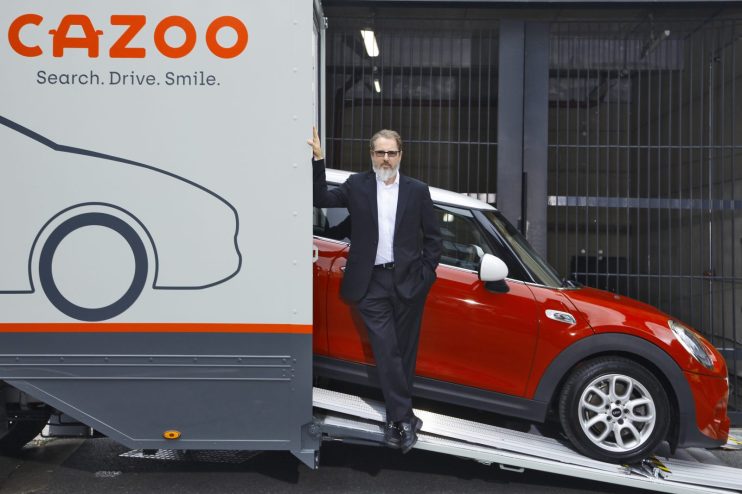New shareholders set to cash out as troubled car dealer Cazoo braces for another tough week

Cazoo could suffer another blow to its market value this week, amid speculation former Daily Mail & General Trust (DMGT) shareholders could sell their shares in the troubled online car dealer.
Former DMGT investors will finally receive their stake in Cazoo in the coming days, which was pledged as part of a deal struck to take the Daily Mail publisher private.
However, with the value of Cazoo’s shares plummeting since then, there is growing expectation shareholders could ditch their new holdings, according to The Telegraph.
DMGT was an early investor in Cazoo and the company’s high valuation last year powered Lord’s Rothermere takeover.
Cazoo shares were used to sweeten his offer as a controlling shareholder to buy out the company.
About a third of the £12.63-per-share headline offer for DMGT was in the value of Cazoo shares, with £8.55 in cash and cash dividends.
However, transfer of the shares has been delayed several times beyond the original due date of 27 February, when Cazoo shares were worth $4.24 (£3.48).
Its share price has dropped dramatically in recent months and the stock is now changing hands at 99 cents.
DMGT investors will now receive the shares on 23 June, almost six months after receiving the cash segment.
Had former DMGT investors received their Cazoo shares alongside the cash segment, they could have sold them for $6.09 per share.
Cazoo, founded by Zoopla entrepreneur Alex Chesterman, listed itself via a special purpose acquisitions vehicle (Spac) last year in New York, raising $1bn in a float that valued it at $8bn.
The company’s share price is down 90 per cent since then and Cazoo is now worth $722m – posting a loss of £330m last year.
Earlier this month Cazoo announced 750 job cuts and a rapid retreat from the new car leasing business.
This is despite investing £24m in the sector only seven months ago, with the purchase of Spain’s Swipcar.
The company blamed a gloomy economic outlook and high inflation eating into its customers’ disposable incomes.
Rivals have also imitated its app-only sales model while offering options such as dealer visits, test drives and repairs.